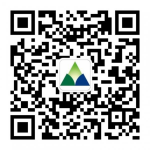Research progress and opportunities in SARS-CoV-2 biology and immunology
Date & Time
Time: 2:00pm-3:00pm (CST), Sep.8
Location: IB 1047

Speaker:
Peng Hong, PhD
Associate Professor
Research Center of The Seventh Affiliated Hospital
Sun Yat-sen University School of Medicine
Abstract:
SARS-CoV-2 is a novel beta coronavirus that causes COVID-19. Since its emergence in 2019, numerous studies have explored every aspect of the biology of SARS-CoV-2 and pathogenesis of COVID-19. In this talk, I will introduce those well-established knowledge of SARS-CoV-2 with an emphasis on its interaction with human immune system, and discuss our recent findings and potential clinical implications. The cellular entry mechanism of SARS-CoV-2 is variant-specific with shifting preference between membrane and endosome entry pathways. The membrane entry pathway is associated with higher virulence possibly by inducing cell fusion and syncytia formation, but clinical evidence supporting this hypothesis is lacking. Also, the entry routes may affect the location of viral replication, which could determine the evasion capability from innate immune detection. Other topics including asymptomatic SARS-CoV-2 infection, vaccine coverage of emerging variants, and factors associated with reinfection will also be discussed.
BIO:
Peng Hong received his bachelor degree from Peking University Health Science Center in 2006 and PhD from SUNY Downstate Medical Center in New York City in 2013. He has worked at US VA New York Harbor Healthcare System as a Research Scientist before starting his own lab at Sun Yat-sen University in 2018. His earlier research focused on molecular mechanisms of stem cell-mediated muscle regeneration and eukaryotic transcription elongation machinery. Since the COVID-19 pandemic began, his research interest turned to the immunology and pathogenesis of COVID-19. His lab now works closely with clinicians to explore unknown territories of COVID-19 and SARS-CoV-2 vaccines.
